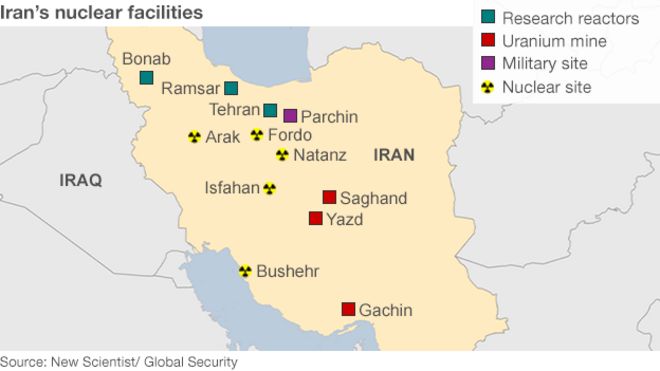Ah, she was posing as an accountant..
FBI hidden camera surveillance videos of the spies’ operations give a fascinating look into Russian spy tradecraft as employed by Chapman and the other Russian agents. The videos show, among other things, the Russian infiltrators hiding messages under bridges, secretly trading information, money and contact information via “brush passes,” and digging for buried payoff money in the woods.
While Chapman and her fellow spies seemed to live routine, middle-class lives, the videos reveal both traditional and hi-tech spy techniques, including Chapman sending encrypted messages to her handler with a specially equipped laptop. In one of the FBI surveillance tapes, Chapman is in a department store, transmitting messages to her contact standing outside the store.
“We were able to capture wirelessly the communications between her and her handler,” Figliuzzi said. “There were six locations throughout New York,” that Chapman used, he said. “She transmits and receives messages from the official who is in close proximity but not anywhere near visibly close to her … she is transmitting encrypted code that the FBI was able to break.” More here.
The 97 page criminal complaint is here.
As Hillary Clinton was beginning her job as President Obama’s chief diplomat, federal agents observed as multiple arms of Vladimir Putin’s machine unleashed an influence campaign designed to win access to the new secretary of State, her husband Bill Clinton and members of their inner circle, according to interviews and once-sealed FBI records.
Some of the activities FBI agents gathered evidence about in 2009 and 2010 were covert and illegal.
A female Russian spy posing as an American accountant, for instance, used a false identity to burrow her way into the employ of a major Democratic donor in hopes of gaining intelligence on Hillary Clinton’s department, records show. The spy was arrested and deported as she moved closer to getting inside the secretary’s department, agents said.
Other activities were perfectly legal and sitting in plain view, such as when a subsidiary of Russia’s state-controlled nuclear energy company hired a Washington firm to lobby the Obama administration. At the time it was hired, the firm was providing hundreds of thousands of dollars a year in pro bono support to Bill Clinton’s global charitable initiative, and it legally helped the Russian company secure federal decisions that led to billions in new U.S. commercial nuclear business, records show.
Agents were surprised by the timing and size of a $500,000 check that a Kremlin-linked bank provided Bill Clinton with for a single speech in the summer of 2010. The payday came just weeks after Hillary Clinton helped arrange for American executives to travel to Moscow to support Putin’s efforts to build his own country’s version of Silicon Valley, agents said.
There is no evidence in any of the public records that the FBI believed that the Clintons or anyone close to them did anything illegal. But there’s definitive evidence the Russians were seeking their influence with a specific eye on the State Department.
“There is not one shred of doubt from the evidence that we had that the Russians had set their sights on Hillary Clinton’s circle, because she was the quarterback of the Obama-Russian reset strategy and the assumed successor to Obama as president,” said a source familiar with the FBI’s evidence at the time, speaking only on condition of anonymity, because he was not authorized to speak to the news media.
That source pointed to an October 2009 communication intercepted by the FBI in which Russian handlers instructed two of their spies specifically to gather nonpublic information on the State Department.
“Send more info on current international affairs vital for R., highlight US approach,” part of the message to the spies read, using the country’s first initial to refer to Russia. “… Try to single out tidbits unknown publicly but revealed in private by sources closer to State department, government, major think tanks.”
The Clintons, by that time, had set up several new vehicles that included a multimillion dollar speech-making business, the family foundation and a global charitable initiative, all which proved attractive to the Russians as Hillary Clinton took over State.
“In the end, some of this just comes down to what it always does in Washington: donations, lobbying, contracts and influence – even for Russia,” said Frank Figliuzzi, the former FBI assistant director for counterintelligence.
The sleeper ring
Figliuzzi supervised the post-arrest declassification and release of records from a 10-year operation that unmasked a major Russian spy ring in 2010. It was one of the most important U.S. counterintelligence victories against Russia in history, and famous for nabbing the glamorous spy-turned-model Anna Chapman.
While Chapman dominated the headlines surrounding that spy ring, another Russian woman posing as a mundane New Jersey accountant named Cynthia Murphy was closing in on accessing Secretary Clinton’s department, according to records and interviews.
For most of the 10 years, the ring of Russian spies that included Chapman and Murray acted as sleepers, spending a “great deal of time collecting information and passing it on” to their handlers inside Russia’s SVR spy agency, FBI records state.
Murphy, living with her husband and kids in the New Jersey suburbs of New York City, reported a major breakthrough in February 2009 in an electronic message sent to her handlers: she had scored access to a major Democrat, FBI records state.
“Murphy had several work-related personal meetings with [a prominent New York-based financier, name omitted] and was assigned his account,” one FBI record from the case read. “The message accurately described the financier as ‘prominent in politics,’ ‘an active fund-raiser’ for [a major political party, name omitted] and a ‘personal friend’ of [a current Cabinet official, name redacted].”
Multiple current and former officials confirmed to The Hill that the Cabinet officer was Hillary Clinton, the fundraiser was New York financier Alan Patricof and the political party was the Democratic National Committee. None of the Americans were ever suspected of illegalities, but the episode made clear the Russian spies were stepping up their operations against the new administration after years of working in a “sleeper” capacity, officials said.
Patricof did not return a call to his office Friday seeking comment. But in 2010 he told The Washington Post after the spy case broke he believed he had been a victim of the spy ring, saying Murphy had worked for him but that he only talked accounting and not government or politics with her.
“It’s just staggering,” he told the Post about the idea of being targeted by Russia. “It’s off the charts.”
Clinton spokesman Nick Merrill declined Saturday to say if the secretary was ever alerted or briefed to the Russian spy effort, instead suggesting that any focus on the spy case was a partisan effort to distract from the controversy around Moscow and President Trump.
“Nothing has changed since the last time this was addressed, including the right’s transparent attempts to distract from their own Russia problems, which are real and a grave threat to our national security,” he wrote in an email to The Hill.
Back in 2010, when the spy story broke, Hillary Clinton’s office issued a statement that there was “no reason to think the Secretary was a target of this spy ring.”
Court documents and agents who worked the case suggest otherwise, saying the Russians were specifically targeting her department and any intelligence they could get on the new administration’s emerging foreign policy.
Trying to get inside State
The FBI documents show exactly what Murphy’s Russian handlers wanted her to get from a Clinton-tied donor she had befriended. “Maybe he can provide Murphy with remarks re US foreign policy, roumors (sic) about White House internal kitchen, invite her to major venues,” one FBI document quoted the Russians as saying.
By 2010, the Russian SVR urged Murphy to consider taking a job with a lobbying firm because “this position would expose her to prospective contacts and potential sources in U.S. government,” the FBI affidavit read.
Figliuzzi said it was the FBI’s belief that Murphy wasn’t going to risk taking a job inside the State Department, where the vetting process might unmask her true identity. So she aimed for a private sector job where “she could get next to people who had the jobs who could get the information she wanted from State,” he said.
The retired FBI executive said that by early summer 2010, agents feared Chapman might flee the country and Murphy was getting too close to posing a security concern to Hillary Clinton. As a result, they arrested the entire ring of 10 spies, and quickly expelled them.
“In regards to the woman known as Cynthia Murphy, she was getting close to Alan, and the lobbying job. And we thought this was too close to Hillary Clinton. So when you have the totality of the circumstance, and we were confident we had the whole cell identified, we decided it was time to shut down their operations,” Figliuzzi said.
The FBI announced the arrests on June 28, 2010, a day after they were made.
The ring highlights the long-standing efforts Russia has made to gain access to U.S. officials, which sprouted up well before the last election. But the recent events also illustrate how Russia’s efforts have advanced.
Figliuzzi said they show a “logical evolution or morphing of methodology to exploit social media in a way that is far more effective and potentially damaging” than the spy ring rolled up in 2010.
“We watched a sleeper cell of ten people for ten years that didn’t come close to the impact of a few thousand ads and posts on FB, Twitter, Google and Instagram,” he said.
Bill Clinton’s big check
A day after the arrests of the sleeper ring, another event captured the FBI’s attention.
Thousands of miles away in Russia, former President Clinton collected a $500,000 check for giving a 90-minute speech to Renaissance Capital, a Kremlin-connected bank, then scored a meeting with Putin himself.
The check caught the attention of FBI agents, especially with Hillary Clinton having recently returned from meetings in Russia, and her department working on a variety of issues where Moscow had an interest, records show.
One issue was American approval of the Russian nuclear company Rosatom’s purchase of a Canadian company called Uranium One, which controlled 20 percent of America’s strategic uranium reserves. State was one of more than a dozen federal agencies that needed to weigh in, and a Clinton deputy was handling the matter.
The second issue was the Russian company TENEX’s desire to score a new raft of commercial nuclear sales to U.S. companies. TENEX for years was selling uranium recycled from old Soviet warheads to the United States. But that deal was coming to an end and now it needed a new U.S. market.
And the third was a promise Secretary Clinton herself made to Russian leaders to round up support in America’s Silicon Valley for then-Russian President Dmitry Medvedev’s dream for a new high-tech hub outside Moscow known as Skolkovo. A team of venture capitalists had been dispatched to Moscow just a few weeks before Bill Clinton landed his payday, records show.
“We have 40,000 Russians living in Silicon Valley in California. We would be thrilled if 40,000 Russians were working in whatever the Russian equivalent of Silicon Valley is, providing global economic competition, taking the internet and technology to the next level,” Hillary Clinton said at the time, according to a State Department transcript. She added that the business executives she dispatched to Putin’s homeland had Twittered their way through Russia.
The bank that paid Bill Clinton was promoting the Uranium One deal’s stock. And the former president entertained – though he never followed through with – meeting with two Russian figures who had ties to the nuclear sales and the Silicon Valley deals as well, State Department records show.
Angel Urena, the official spokeswoman for the former president, told The Hill that Bill Clinton never discussed the issues pending before his wife’s department when he was in Russia and that the money he collected for himself and his charitable efforts never influenced his wife’s decision-making.
Another investigation
Away from Bill Clinton’s check and the breaking news of a spy ring, the FBI had another major investigation underway where the Clinton name was surfacing.
Since 2009, the FBI had an undercover informant gathering evidence of a massive bribery and kickback scheme inside the Russian nuclear energy firm TENEX and its American arm TENAM.
Years later, FBI agents would help the Justice Department bring charges against the Russian nuclear industry’s point man in the United States, TENEX director Vadim Mikerin, as well as a Russian financier and an American trucking executive whose company moved Russian uranium around the United States.
But as the informant gathered evidence of the bribery scheme in early 2010, he began to hear a familiar name crop up in conversations. The Russians kept talking about ways they could win access to or favor with the Clintons, and the informant kept reporting it back to his FBI handlers.
The informant has never been publicly identified, but his lawyer told The Hill on Friday he can shed significant light to Congress on what the Russians were doing to try to win favorable treatment from the Obama administration.
“I can confirm that my client while working undercover for the FBI and in the employ of the Russian energy firm TENEX witnessed numerous, detailed conversations in which Russian actors described their efforts to lobby, influence or ingratiate themselves with the Clintons in hopes of winning favorable uranium decisions from the Obama administration,” attorney Victoria Toensing said.
“Unfortunately, he cannot at the present time disclose the specifics of that evidence he reported to the agents in real time because of an NDA he signed with the bureau. But we are working with Congress to find a means in the future for him to transmit the important information he possesses,” she added.
There are some public records that show what TENEX was trying to do inside the United States.
The Russian firm between 2009 and 2011 hired two Washington consulting firms to help it win Obama administration approval for policies and contracts that opened up billions in new nuclear fuel sales for TENEX, foreign agent registration records show. Those firms were never implicated in any wrongdoing in court records, and were just doing contract work to expand the Russian company’s commercial nuclear sales inside the United States.
The lobbying work was perfectly legal, focusing on agencies like State, Commerce and Energy that supervised the U.S.-Russia nuclear relationship. But once again, a connection to the Clintons emerged.
One of the firms TENEX hired in 2010 was providing hundreds of thousands of dollars a year in support to the Clinton Global Initiative, starting in 2008.








 photo and more on each location courtesy of
photo and more on each location courtesy of